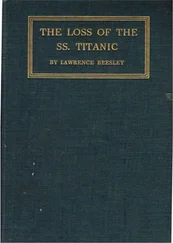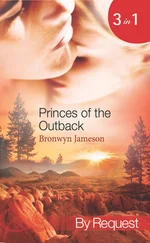John Byron - Byron's Narrative of the Loss of the Wager
Здесь есть возможность читать онлайн «John Byron - Byron's Narrative of the Loss of the Wager» — ознакомительный отрывок электронной книги совершенно бесплатно, а после прочтения отрывка купить полную версию. В некоторых случаях можно слушать аудио, скачать через торрент в формате fb2 и присутствует краткое содержание. Издательство: Иностранный паблик, Жанр: foreign_antique, foreign_prose, на английском языке. Описание произведения, (предисловие) а так же отзывы посетителей доступны на портале библиотеки ЛибКат.
- Название:Byron's Narrative of the Loss of the Wager
- Автор:
- Издательство:Иностранный паблик
- Жанр:
- Год:неизвестен
- ISBN:нет данных
- Рейтинг книги:3 / 5. Голосов: 1
-
Избранное:Добавить в избранное
- Отзывы:
-
Ваша оценка:
- 60
- 1
- 2
- 3
- 4
- 5
Byron's Narrative of the Loss of the Wager: краткое содержание, описание и аннотация
Предлагаем к чтению аннотацию, описание, краткое содержание или предисловие (зависит от того, что написал сам автор книги «Byron's Narrative of the Loss of the Wager»). Если вы не нашли необходимую информацию о книге — напишите в комментариях, мы постараемся отыскать её.
Byron's Narrative of the Loss of the Wager — читать онлайн ознакомительный отрывок
Ниже представлен текст книги, разбитый по страницам. Система сохранения места последней прочитанной страницы, позволяет с удобством читать онлайн бесплатно книгу «Byron's Narrative of the Loss of the Wager», без необходимости каждый раз заново искать на чём Вы остановились. Поставьте закладку, и сможете в любой момент перейти на страницу, на которой закончили чтение.
Интервал:
Закладка:
Byron's Narrative of the Loss of the Wager With an account of the great distresses suffered by himself and his companions on the coast of Patagonia from the year 1740 till their arrival in England 1746
ADVERTISEMENT
At a time when every thing connected with the name of Byron is regarded with such general interest, it is a subject of surprise and regret that no popular edition should exist of the Narrative of Commodore Byron. Indeed, to procure any copy at all of the work requires some research and trouble. To supply this deficiency is the object of the present publishers.
To the admirers of the illustrious Poet, the Narrative of the sufferings of his grandfather will, on more than one account, be acceptable. In the Poems, it is often, whether humorously or pathetically, alluded to; for instance, in the mournfully beautiful stanzas to his sister, written soon after he left England for the last time, he says,
"A strange doom is thy father's son's, and past
Recalling, as it lies beyond redress;
Reversed for him our grandsire's fate of yore,
Had no rest at sea , nor I on shore!"
Again, in a different mood, in Don Juan, after having carried his hero through the horrors of a shipwreck, as disastrous and fatal in itself and its consequences as his imagination could conceive, he observes —
" – for none
Had suffered more – his hardships were comparative
To those related in my grand-dad's Narrative."
To which passage he appends the following note: – "Admiral Byron was remarkable for never making a voyage without a tempest. He was known to the sailors by the facetious name of 'foul-weather Jack.'" Indeed, to this narrative the poet is indebted for many of the incidents in that surpassing description of "the dangers of the sea." The awful "whispering" in which, according to the Admiral, the men communicated their first horrid thoughts of putting one of their number to death for the support of the rest, is admirably preserved and amplified in Don Juan:
"At length one whispered his companion, who
Whispered another, and thus it went round,
And then into a hoarser murmur grew,
An ominous and wild, and desperate sound,
And then his comrade's thought each sufferer knew,
'Twas but his own, suppressed till now, he found:
And out they spoke of lots for flesh and blood,
And who should die to be his fellow's food."
The germ of the conception of the cave-scenes, so beautifully described in the poem, will also be found here; the fondness of Juan for his favourite dog, the voracity with which he devoured the long-withheld food, and many other incidents, were suggested by this Narrative. 1 1 Captain Inglefield's account of the loss of the Centaur, (in September, 1782), furnished Byron with many of those trivial incidents, which, as the poet well knew, render a story, to use Gibbon's words, "circumstancial and animated," instead of "vague and languid;" the "eternal difference between fiction and truth." The behaviour of the sailors before the sinking of the ship; some lashing themselves in their hammocks, some putting on their best clothes; the sail made of blankets; the ragged piece of sheet with which they caught the rain-water; the words used by the man who first saw the land, &c. &c., are all faithfully copied or slightly altered from Inglefield.
To those who would study the character of Lord Byron; discover what qualities of his nature were derived from his ancestors, and what were peculiarly his own; who would trace the effect produced on his writings by early tastes, habits, and associations, the narrative will afford ample material for observation.
Mr. Moore, – who, in paying to genius that tribute which genius alone can fully pay, has shewn how thoroughly he understood the character of the poet (a character, perhaps, after all to be felt rather than explained ), how well he appreciated his virtues and the peculiar circumstances attendant on genius, which palliate, if they do not excuse, his foibles, – remarks, that Lord Byron "strikingly combined, in his own nature, some of the best and perhaps worst qualities that lie scattered through the various characters of his predecessors; the generosity, the love of enterprise, the high-mindedness of some of the better spirits of his race, with the irregular passions, the eccentricity, and daring recklessness of the world's opinion, that so much characterised others." In the character then of the most famous of those "better spirits," as exemplified in his own narrative of his sufferings and adventures, we may discern the source of many of the amiable qualities which descended to and adorned the immortal poet. We shall observe in both the same frankness, generosity, affability, love of excitement, the same mildness, and unassuming modesty. But the contrasts of their characters we shall find even more striking than the resemblances. We shall see in the sailor the ease and contentedness of spirit arising from its agreement with the sphere it moves in – the soul harmonizing with the situation – the man with the circumstances – the Supply equivalent to the Demand. We shall see in the poet the "high instincts of a creature moving about in worlds not realized" – the large expectancies, the high anticipations, unfulfilled and unanswered; the discontent, the jarring of a being not at one with the place of its existence, panting for something above it, aspiring "beyond the fitting medium of desire." We shall see him inordinately yearning after affection and happiness, yet enveloped, as it were, in a nervous network of sensibility, feelingly alive to every the faintest manifestation of slight, neglect, unkindness, – to all that causes sorrow and pain: we shall see the co-existence of these qualities producing necessarily disappointment and disgust; the very capability of enjoying the good, unfitting him for the endurance of the ill; the power of imagination heightening the beauties of the ideal, the keenness of perception aggravating the defects of the real; the consequent struggles for existence in a wounded spirit between "feelings unemployed," affections unreturned, and the bitterness or apathy they engender – between original benevolence and acquired misanthropy. We shall see the sailor habitually yielding himself to the guidance and authority of others, unhesitatingly acknowledging, and, as a matter of course, complying with, the established relations, laws, and customs of society; submitting without repining, question, or surprise, to the vicissitudes of fortune; patient of hardship, uncomplaining of Circumstance. The poet, from the pride of Mind, accustomed ever to decide for itself, to act and reflect always, obstinately questioning even Destiny and Fate; bidding haughty defiance to their Ruler, or yielding with sullen indifference or gloomy repining; if confessing the necessity of compliance, hardly resigned. We shall find the sailor sustaining his cheerfulness in every situation; the poet, plunging, perhaps from constitutional melancholy, into misery; acted upon by that strong attraction, that irresistible impulse towards the dark and the sad, that capability, strikingly described by himself, of "learning to love despair." We shall see throughout the difference between the continual presence and the comparative absence of consciousness, that power by which Self, rising as it were above itself, makes itself the subject of microscopic observation. In the writings especially, of each, we shall observe the operations of these opposite properties. The sailor writes on, unaware and thoughtless of the effect of what he writes: the poet, in his letters particularly, seems to know intuitively the effect on others of every word he sets down; he reads their thoughts, he hears their remarks as he writes; and this knowledge, so immediate that its effects on his style seem almost unintentional, continually modifies his expressions, giving the appearance of affectation to what is no more than a natural result of his quick perception and extreme sensitiveness. In every action, too, of the poet, important or trivial, the working of this principle, so hard to be discovered in the sailor, is equally evident. He looks always to the effect: nothing seems done solely for itself: the love of admiration, of being remarkable, of standing alone, however disguised, may almost always be detected. Finally, we shall not fail to observe throughout, the contrast between the single and the "many-sided" mind; between the ordinary and the extraordinary; between the Mortal made immortal by force of circumstances; the Immortal, in spite of circumstances, asserting and maintaining his inborn immortality.
Читать дальшеИнтервал:
Закладка:
Похожие книги на «Byron's Narrative of the Loss of the Wager»
Представляем Вашему вниманию похожие книги на «Byron's Narrative of the Loss of the Wager» списком для выбора. Мы отобрали схожую по названию и смыслу литературу в надежде предоставить читателям больше вариантов отыскать новые, интересные, ещё непрочитанные произведения.
Обсуждение, отзывы о книге «Byron's Narrative of the Loss of the Wager» и просто собственные мнения читателей. Оставьте ваши комментарии, напишите, что Вы думаете о произведении, его смысле или главных героях. Укажите что конкретно понравилось, а что нет, и почему Вы так считаете.












